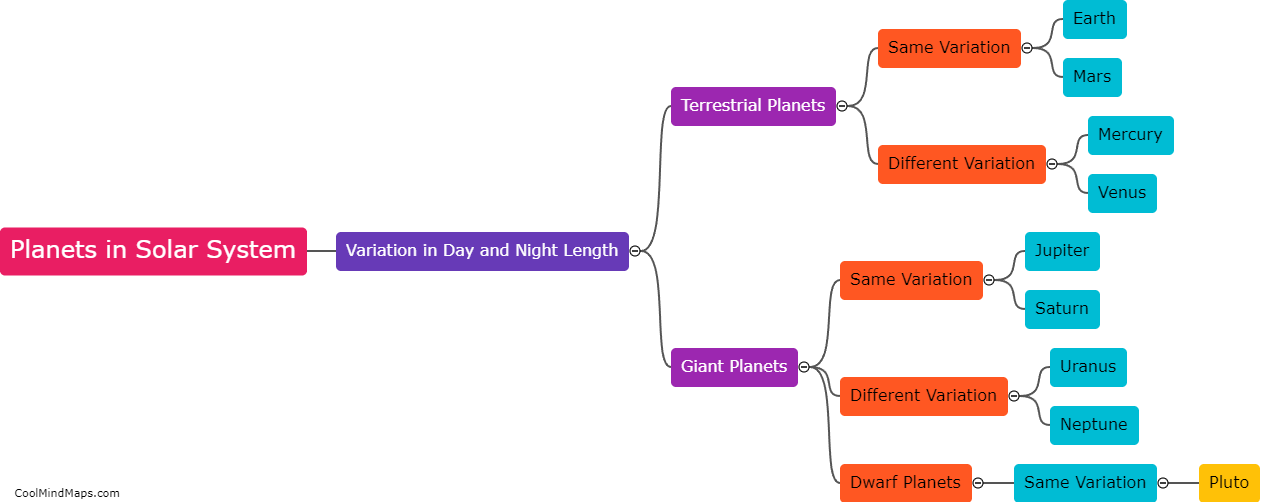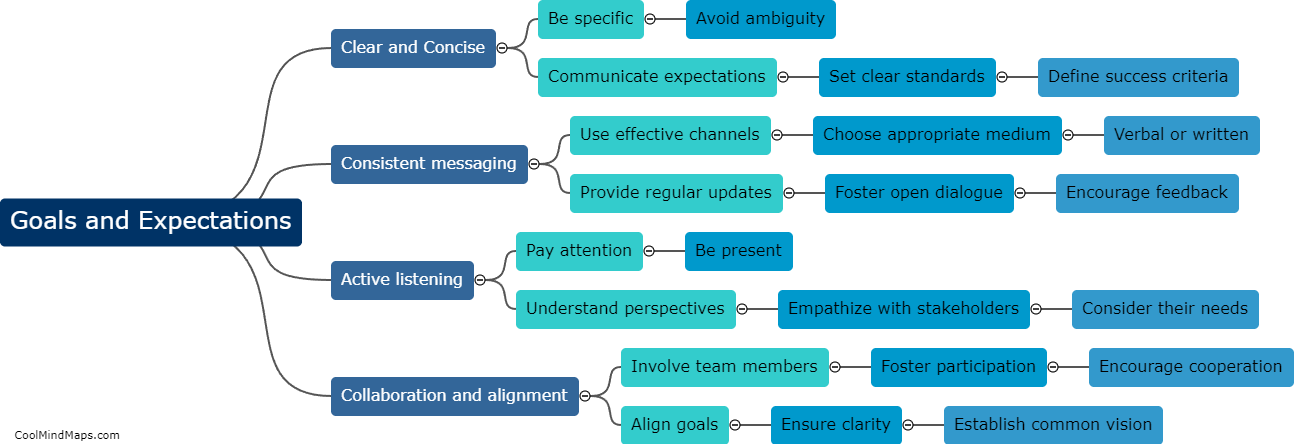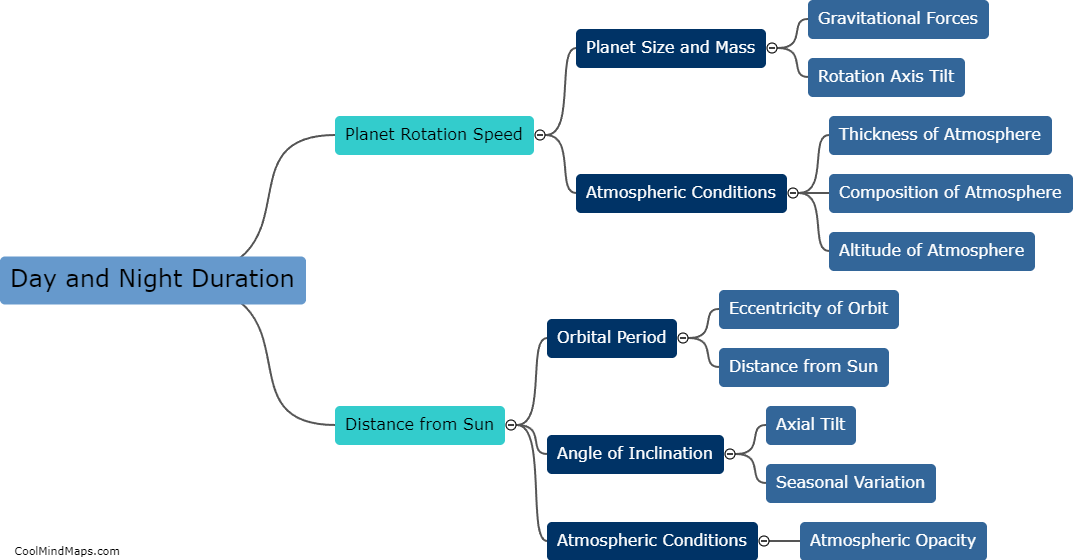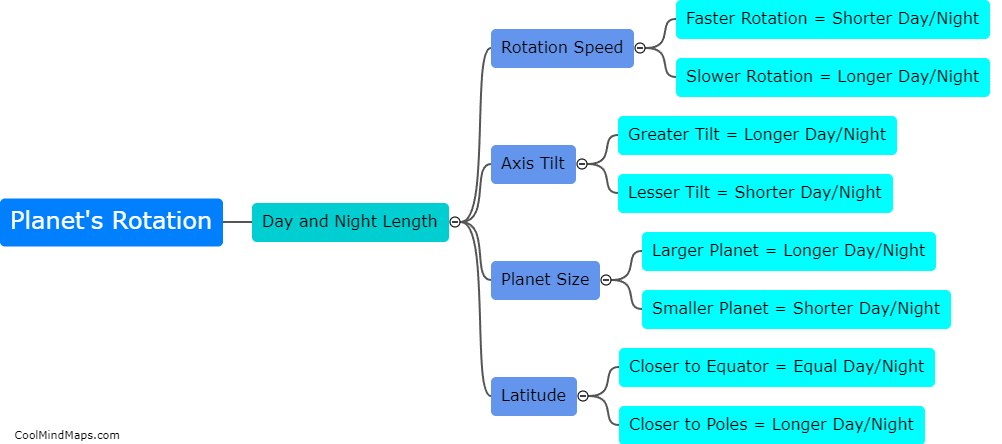Do all planets in the solar system experience the same variation in day and night length?
No, all planets in the solar system do not experience the same variation in day and night length. The duration of day and night on a planet is determined by its rotation period, which is the time it takes for the planet to complete one full rotation on its axis. Different planets have varying rotation periods, resulting in different day and night lengths. For example, Earth takes approximately 24 hours to complete one rotation, resulting in a day and night length of roughly 12 hours each. In contrast, other planets like Venus have extremely slow rotation periods, taking hundreds of Earth days to complete one rotation, leading to much longer day and night durations. Additionally, some planets may experience extreme variations in day and night lengths due to axial tilts or orbital eccentricities. Therefore, the variation in day and night length differs across the planets in the solar system.

This mind map was published on 13 October 2023 and has been viewed 149 times.











